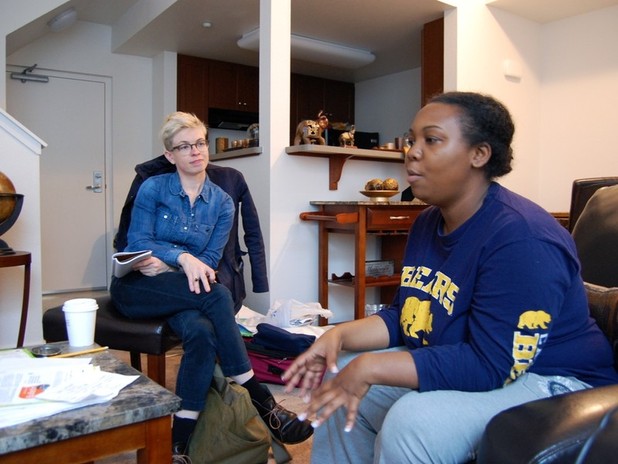May 03, 2012
IDEO.org Fellow Marika Shioiri-Clark and her team synthesize findings from their field research in Los Angeles on the topic of student motivation and what it might take to succeed in school.
After a great week of research in Los Angeles, we’re back in the office and starting to synthesize the wealth of insights that we’ve learned along the way.
A basic framework that we are working with in our analysis is the notion that to succeed in school, students need a combination of inspiration, momentum, and support. A lack of any of these will often cause a student to lose motivation, and eventually, to drop out of school.
Inspiration means that students must find relevance in the topics that they’re studying, and understand the meaning in their own lives. We’ve seen some innovative project-based teaching models where students learn content in several different academic areas as applied to a hands-on project. One school used the topic “Build a Boat” to teach buoyancy, physics, geometry, and craft, and ended with a launch party, as students saw the boat they had designed and built actually floating. Show a student how a concept that they're learning has ramifications in their own everyday lives, and they'll work that much harder to master it.
Momentum means that students are able to build school into their routine, and to understand that they are on a path to a specific goal. Many students we talked to lamented the sense that they didn’t know what they wanted to study, and thus wandered from major to major, or that they didn't even know what the benefit of a degree would be in the long run. Some students also worried about inadvertently losing connection to the tenuous momentum they had built by taking even small breaks from a study routine. One online masters student discussed completing a semester's work in a hospital room while her son lay recovering. "I was worried that if I took time off even for a week, I would never go back."
Support means that students have access to a network of people who will help them to finish their education, and shepherd them through points of weakness. Many students we met with had few mentors or role models to help them along; indeed, often their parents didn't much care if they finished college or not. In this environment, the role of teachers and school counselors becomes ever more critical in instilling in students the sense that finishing school is important. We sometimes heard lines like "I felt like if I dropped out, no one would care or even notice." And because students often cited a desire to make others proud as a driving force in their efforts, having someone at the finish line to congratulate them is paramount.
How might we build on these three crucial elements of student motivation to introduce a truly disruptive new model of education in the United States? We're developing concepts as we speak, and are pretty excited about some of the ideas we've already come up with at this early stage. Onward and upward!





